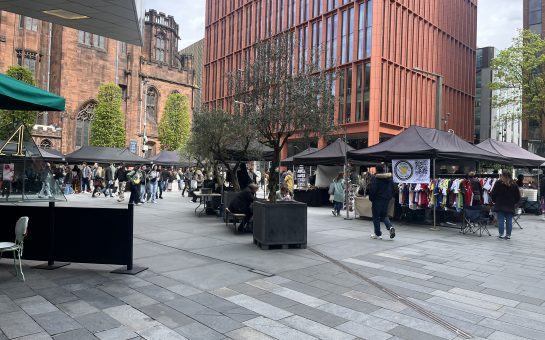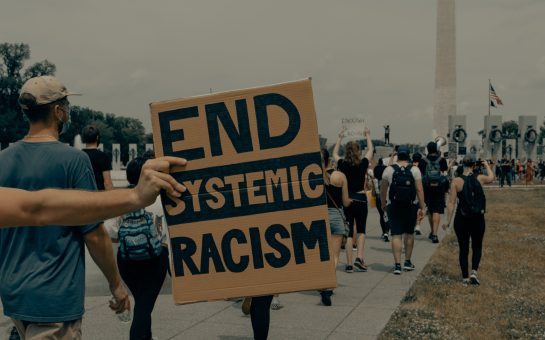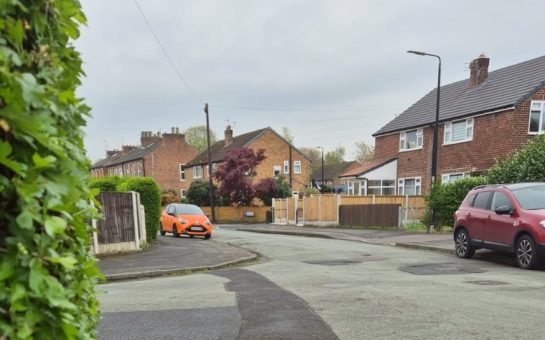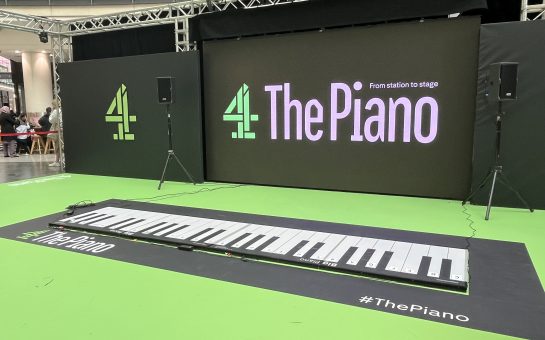The flow of George the Poet’s lyricism travels much deeper than the regurgitated 16 bars we’re used to hearing in most urban music.
A ten minute phone conversation with the 24-year-old Londoner is enough to understand why lovers of literature, hip hop, social activism and politics have collectedly dubbed him this generation’s Shakespeare.
As the date to George’s gig at Manchester’s Antwerp Mansion approaches, the Cat D lyricist explained how the north south divide in music inadvertently reflected the way certain sub cultures in London are perceived by wider society.
“I don’t know if it’s just that southerners are more reserved but I think I get a better reaction from a crowd when I’m up north especially because a lot of what I deal with is about social exclusion,” he said.
“I was looking at certain government departments today and the arrogance of Parliament and Westminster in general is ridiculous. The north is largely overlooked in what’s supposed to be the mainstream British experience and I think my community is exactly the same.
“I started putting it together and I concluded that it’s social exclusion.”
Raised in a Harlesden high rise in the midst of gang warfare, drugs and social deprivation, George was one of the lucky ones — the exception to the status quo known for cascading young black males into a life of segregation, violence and jail time.
In 2010, George Mpanga enrolled as a student at the University of Cambridge, but despite his prestigious level of higher education the 24-year-old insists that the life lessons he learned while growing up in gang-ridden Brent, west London, and his Ugandan roots remained an integral part of his poetry.
“If I could be anywhere else in the world apart from London I would pick Kampala Uganda where my family came from,” he said.
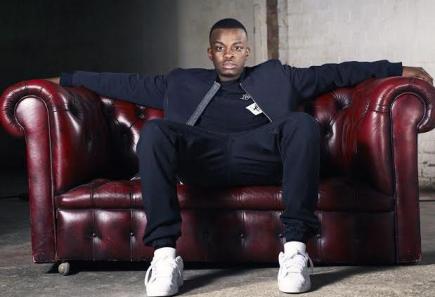
LYRICAL MASTER: The 24-year-old has racked up an army of fans with his spoken word poetry
“It’s a very beautiful place to be. I am a result of my parents so it’s intrinsic that my artistry would be influenced.
“All I can do is channel my own experiences otherwise I’d be speaking from an uninformed perspective.
“I’ll tell you what I actually know and then we’ll try and extrapolate the universal meaning from that so that we can have a wider conversation about human behaviour and the organisations of our society.”
As a teenager, grime and hip hop were major musical influences for the rapper-turned-poet who has never been one to shy away from believing the genres don’t give a big enough voice to those growing up in communities where social mobility is a myth.
Speaking about his passion for spoken word, there’s no denying that George holds a voice that could influence a generation of visceral thinkers.
“For me the main event of anything that I put out has to be the idea, I need to stand by that idea. Now with spoken word, there’s nowhere to turn – it’s all on your words, therefore if anyone engages with me they have to assess my ideas and that’s what I wanted more than anything,” he said.
“I’ll be honest with you, everything is open to interpretation the minute something leaves its creater and goes into the world.
“For example when I write a poem and it goes on the internet, it’s no longer just mine, it’s everybody’s. Everyone is going to come with their own interpretation — my responsibility is trying to direct the conversation.”
The 24-year-old was recently nominated for the 2015 Brits Critics’ Choice award and came fifth in BBC Radio 1’s Sound of 2015 list.
Now that his poetry is gaining mainstream success, the Londoner openly sees himself as a representative and voice for his community.
CRITICS CHOICE: The Cambridge-educated ‘urban wordsmith’ has been shortlisted in the 2015 Brit Awards
He said: “It’s not every poet’s responsibility, it’s not every artist’s responsibility; it’s what I took upon myself because I’m putting things out there with the aim of it being discussed. If I’m not sharing that conversation, I’m not doing a complete job.”
George, who studied politics, sociology and psychology at Cambridge, revealed that there were times his background isolated him from the rest of his university peers but admitted that adapting was a part of learning.
“No-one is entirely the same with their families as they are with their friends. When we go out into the world we have to navigate, we have to adapt,” he explained.
“My experience personally, as a young black male in that situation, did require quite a lot of adapting. There were things that I just didn’t understand and get.
“Little communicative things, things like etiquette, the things that I needed to figure out. But everyone experiences that and I don’t think it should be reduced to someone who is young or black.”
Since the 60s, spoken word has been a literary art form practiced among social clubs, open mic nights and university poetry slams across the world but particularly found solace among African American poets and performers as an alternative way of expression, articulating political frustration and community repression.
With the artistic discipline growing in popularity in the UK with poets like Kate Tempest, JJ Bola and Sophia Thukur taking centre stage, there’s no question why performance based poetry, incorporating storytelling, syntax and world play, has finally found residency within mainstream UK arts and culture.
Throughout the 24-year-old’s latest EP, Chicken and the Egg, George takes his listeners on a journey of teen pregnancy, an ardent young relationship and the lax social cohesion of his demographic through the use of local slang and inner city London dialect.
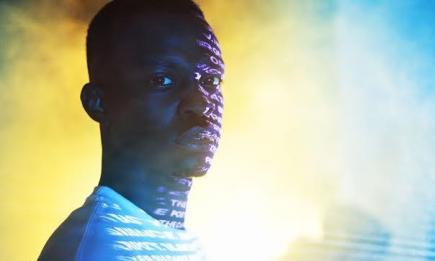
‘MANDEM’: George says he’s keen to use slang words in his poetry when making valid points
“What I use is a hybrid Afro Caribbean colloquial vernacular. The reason I think it is understood is that it’s all about context”, explained George.
“I think people understand the context of my ideas, therefore the semantics or the syntax that I use is peripheral, they’re auxiliary.
“So I think when people understand the point, they afford all other areas of my speech because one thing that I’m always keen to do is to humanise the representation of my community.“
Removing superior assumptions that street slang is the language of the UK’s disenfranchised and uneducated black youths is also important to London boy George.
“Sometimes when you hear me using slang like ‘mandem’, that’s a collective term for guys or people that I use regularly.
“Whenever it’s put out in a public space it’s usually done ironically or in a patronising way that my community is often represented as if we’re themes of amusement.
“But I’m keen to put those words in places where I’m making valid points so that people start to respect it and its normalised so that the next generation after me don’t have to feel like how I felt at Cambridge, having to change and evolve overly in order to be just seen as normal which isn’t fair at all.”
George went on to explain how he felt that politicians were out of touch with the rest of the UK.
“A lot of us are excluded. It’s all Westminster, the suits and the people who are able to work themselves into areas of influence and are completely blind to everyone else’s experience.
“And that’s why a lot of the time in the south, northerners get a bad rap as they’re seen as either being simple or funny, the exact same things they say about my own community.”
George the Poet performs in Manchester at Antwerp Mansion Friday February 20.
